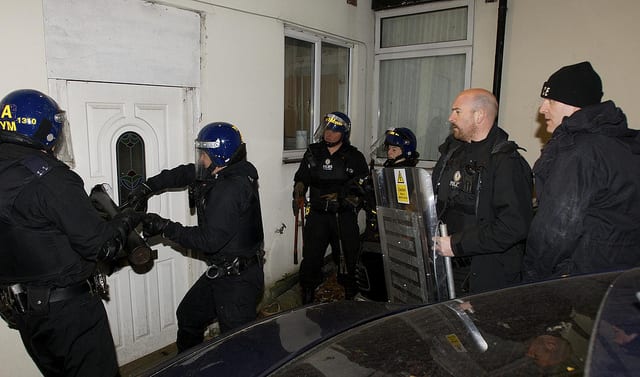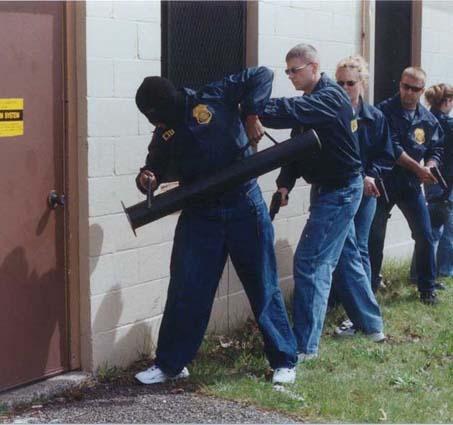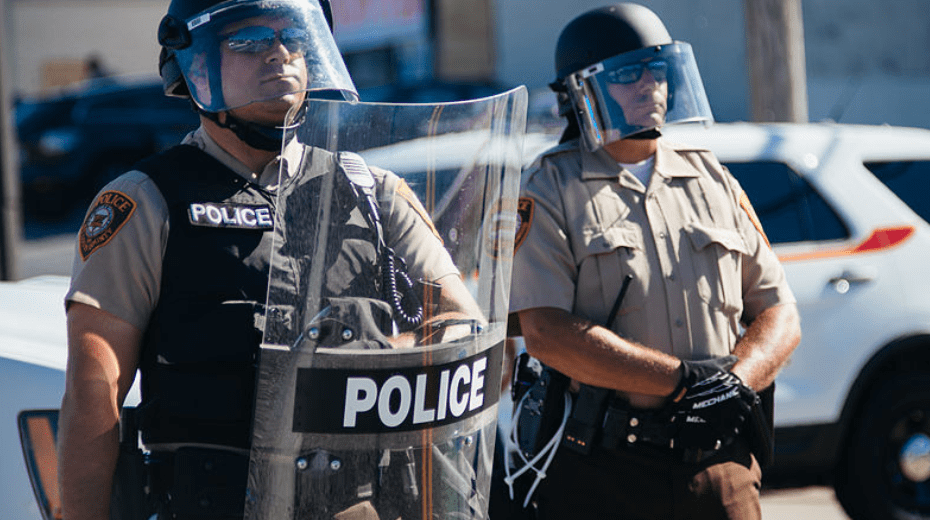Although it seems like the nightly news and daily newspapers are plastered with tragic tales of violent crime day after day, the fact is that violent crime rates in the U.S. have dropped dramatically over the past 25 years.
But that doesn’t mean that police perform their jobs any differently. And whether you’re innocent or guilty, dealing with the police and the justice system in America can be a harrowing ordeal.
To be clear: we are not suggesting that police are bad. But the harsh reality is that many aspects of our society are broken, and sometimes innocent people and people involved in low-level criminal activity get caught up in a system meant to punish serious offenders, with disastrous consequences for their lives.
Here are 5 unfortunate realities of dealing with the police in America.
1. Dogs and cameras can make you look like a criminal
Appearances are everything, and police look for certain signs they think might suggest someone is engaging in criminal activity. Two of these signs are cameras and dogs that may be deemed “dangerous.”

Photo Credit: Flickr,West Midlands Police
If police see a camera affixed to the outside of a house, it’s one indication that the dwelling may contain people who commit crimes.
There’s no doubt that many drug dealers do use surveillance cameras, both to avoid being robbed and to get a heads-up on when the police are in the area, but they certainly aren’t the only ones. People who live in dangerous neighborhoods, or even nice areas, sometimes have outdoor cameras to protect their property.
Police have a tool called “no-knock warrants,” where they bust your door down and raid your house without warning you. These special warrants are given out based on a points scale, called the “Risk Matrix,” where each contributing factor has a number of points attached to it. A security camera is worth a certain number of points, and so is a loud, barking dog inside a house. A yappy pooch can alert owners to a possible raid or might even be a “dangerous dog.”
If you couple the surprise warrants with places where A LOT of people own guns, like Texas, you can get tragic outcomes based on misunderstandings.
2. Bad information.
Police officers are susceptible to human error just like the rest of us, and sometimes they act on bad information and intelligence, or even incomplete information.
A man in Corpus Christi, Texas, actually shot three officers during a surprise raid on his home, though he was eventually acquitted. The police were looking for the man’s nephew, a low-level drug dealer, who wasn’t even in the home at the time. The man believed his house was being broken into, he was a legal gun owner, and so he opened fire to protect his home and family.

Photo Credit: Pixabay
The man’s home was not properly surveilled, the intended target wasn’t there, and as a result, three officers were shot (thankfully, they survived).
Another case in Texas didn’t end so well. A man who was growing marijuana plants had his house raided in a no-knock raid in the middle of the night, but since he had no idea that the people invading his home weren’t criminals, he also opened fire – and killed a police officer. An informant had told police that the man had a large growing operation and was heavily armed. Police didn’t do enough research, only driving around his residence exactly one time before raiding his trailer.
In reality, this man owned a couple of 6-inch marijuana plants and wasn’t a big player in the drug game at all.
Police perform roughly 20,000 no-knock raids every year, and the success rate of finding drugs is only about 25%.
3. Police are forgiven for mistakes. The public, not so much.
This one pretty much goes without saying. Police officers are public servants who put their lives on the line on the day and citizens are, well, just regular people who are supposed to be law-abiding. But is it fair?

Photo Credit: Wikimedia Commons
Although both of the men whose stories we discussed earlier were eventually acquitted of wrongdoing, the first one spent 22 months in jail awaiting trial, losing almost two years of his life. An officer who accidentally grazed and injured a fellow policeman in the same raid was awarded for valor. Obviously, the tense situation went downhill fast and was chaotic, but it’s easy to see that there is a double standard at play here.
4. Even if you get off, you still get punished.
Yes, both of the men in these cases were acquitted (even the one for murder, though he did get nailed on a drug charge), but that doesn’t mean they didn’t suffer the consequences from the tragic situations that took place.
The man who spent 22 months in jail lost his freedom for a long time, his elderly mother was placed in protective services, one of his dogs simply disappeared after the raid (they believe the dog was shot and killed), and his house was condemned and sold by the city. On top of that, his 22 months in jail were spent in solitary confinement, which can have devastating long-term psychological effects on a person.
5. The system is broken and needs to be reformed.
At the end of the day, the police and the citizens involved in many of these no-knock raids suffer tragic consequences. There are tens of thousands of these raids each year, and yes, some of them get bad guys off the streets along with drugs and illegal weapons.

Photo Credit: pxhere
But what about the law enforcement officers who are killed and injured? And the innocent people whose lives are forever altered, or perhaps ended as well? And what about possible bystanders who pay the price for something that didn’t involve them in the first place? The reality is that the type violent and deadly incidents that were discussed earlier will happen again – they happen regularly.
The question to ponder is if the tactics are worth it and what can be changed to assure that policing in America is safer and more efficient. Until changes are made, we’ll continue to see more unfortunate incidents that play out across the country year time and time again.






